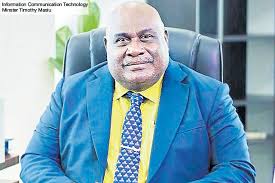by Richard Sanders, Staff Writer
Timothy Masiu, the Communication Minister of Papua New Guinea, is receptive to feedback on the government’s upcoming media policy. The fifth draft of the policy, subject to considerable scrutiny, seeks to advance freedom of speech and information in PNG by enhancing public and private media, providing media education and skill development, and endorsing self-regulation measures.
However, organizations like Transparency International PNG, the Media Council of PNG, the Pacific Freedom Forum, and the UN Resident Coordinator, among others, have called for the policy to be abandoned.
During the Pacific International Media conference in Fiji recently, Masiu, speaking to RNZ Pacific, mentioned that the government has received significant feedback.
“It’s valuable to receive criticism. It strengthens us and motivates us to progress; critics are beneficial for us,” he stated.
“We don’t aim to just sail smoothly; instead, we welcome feedback to adjust our thinking and ensure that the policy is widely accepted by our people.”
In response to concerns regarding the quality of media content, he expressed that the government aims to ensure that the media comprehends its roles and responsibilities.
He highlighted the issue of individuals without formal journalism education being accepted by media companies to contribute to their content. These individuals may lack a clear understanding of journalistic ethics and the subjects they cover.
The communications minister emphasized the government’s intention to use education as a means to improve the practices of media professionals. If individuals demonstrate writing skills, they may be supported to attend journalism schools or receive training to enhance their capabilities.
He expressed uncertainty about whether parliamentarians fully grasp the media’s role beyond just consuming news and discussing it. He stressed that the media is an essential industry and a fundamental pillar in society, deserving of protection to uphold freedom of the press in Papua New Guinea. He also noted that not all Members of Parliament may fully appreciate the significance of the media.



